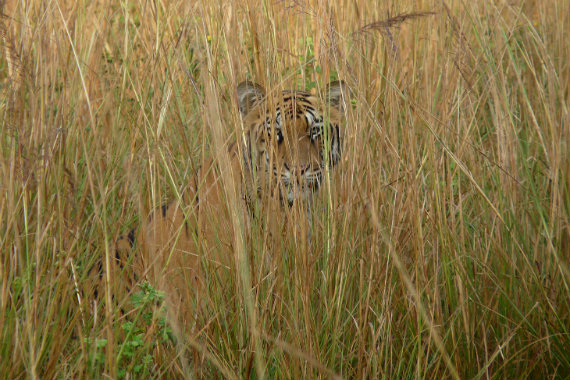IUCN Tiger Programme extended to 2023
The IUCN Integrated Tiger Habitat Conservation Programme (ITHCP) has been extended for a further five years thanks to a €7.5 million donation from the German Cooperation.
Launched in 2014, the ITHCP is a strategic funding mechanism that aims to save tigers (Panthera tigris) in the wild, their habitats and to support human populations in key locations throughout Asia. The programme - which is supported by German Cooperation (The German Government) and the German Development Bank (KfW) - has already facilitated 12 projects in six countries to better manage Tiger Conservation Landscapes. The additional funding will further strengthen the most critical of these projects and consolidate ongoing work.
“The Integrated Tiger Habitat Conservation Programme already safeguards roughly 15% of the global tiger population and benefits over 52’000 local community members by providing jobs, alternative resources and sources of incomes and improving local infrastructure,” says Sugoto Roy, Coordinator of the IUCN Integrated Tiger Habitat Conservation Programme. “The extension of funding for the programme will ensure the communities benefitting from the programme remain self-sufficient, so the projects are sustainable in the long-term.”
Tigers are found in 13 range states across Asia. Fewer than 4000 mature individuals of tiger now remain in the wild as a result of illegal hunting – for skin, bone, meat and tonics – and habitat destruction. The IUCN Red List of Threatened Species™ classifies the Tiger as Endangered.
In 2010, the 13 Tiger Range Countries adopted a Global Tiger Recovery Program with the aim of doubling the number of wild Tigers by 2022, through combatting threats, engaging with local communities and improving tiger habitat management. The ITHCP aims to support these targets and results of the ITHCP will be discussed at the next global tiger summit in 2022 - the next year of the Tiger.


